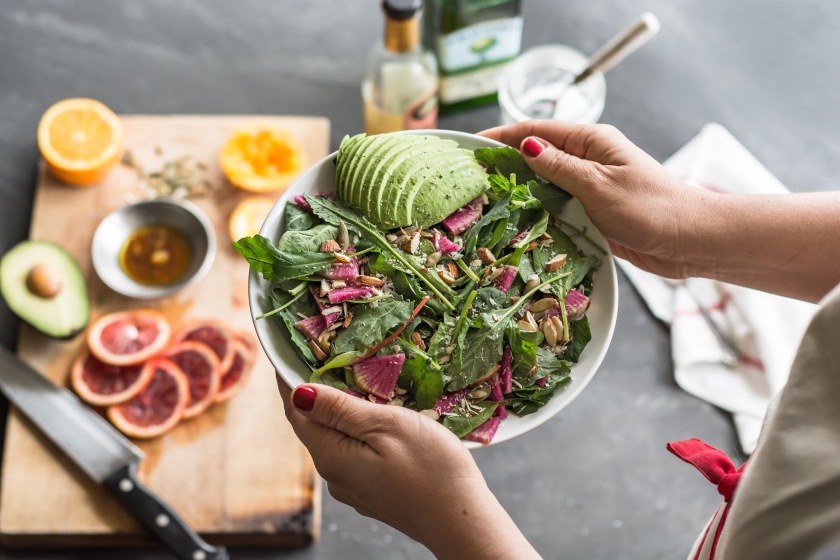Am I eating at my best?
It’s no secret that diet is a very important aspect in our daily lives. But, are what we’re consuming benefiting us? Of course we won’t always be eating healthy, but having a diet that is well balanced is a bright idea. Obesity, Fitness, and Wellness Week, posted a journal about what different studies are saying regarding our brain in relation to our diet. The journal related healthy dieting to higher levels of memory and brain function later on in life, allowing you to enhance your memory as you age. As Alzheimer’s become a major factor in the life of many elderly people today, researchers/scientists are working on finding preventative techniques to help people stray away from Alzheimer’s disease as they get older. When you’re young, memory loss and the thought of Alzheimer’s disease are not a main topic on your mind. We know that. But, this is actually the time when you should be more focused on your diet and eating better. Prevention starts early. The more you work on yourself when you’re young, the better the benefits are as you get older. Feed your brain more than oil and saturated fat! Not saying, “No fries!” “Put down that fried chicken!”, but maybe reward yourself with one fatty meal a week? Or every two weeks? You’ll notice your body will feel much better and operate better than it has in weeks prior.
So the next question is, “Ok. I know I should start early, but what age is ‘early'”? Look, there is no “set age” for when you should begin to take investment in yourself. I realize as a teen, unhealthy eating is a “right of passage” but as someone in or transitioning into your twenties, your body is changing and SETTING. Your time for growth is over. You’re an adult now and should start developing an interest in what is going into your body. Everything is probably pretty hectic and fast paced right now, so scruffing down food that is high in saturated fat, sugar, and oil is the last thing you need. It’ll slow you down and make you tired quicker. So, switching to a healthier diet wouldn’t be a bad choice to make around this time. Those in their 30’s and 40’s are just the same, except, you’re getting a bit older and your metabolism may not be as high as it use to be. So, implementing healthy foods and exercise into your diet would be a good lifestyle choice. Signs of early onset Alzheimer’s range in around age 50.
Regular health advice, usually from your doctor, like staying active and keeping cholesterol, blood sugar and blood pressure down and under control, is the direction you want to head in. I know we’ve all heard it before, said “Ok. I’m going to do it” and brushed it off because we’ve all been surviving this long, BUT as we get older we need to take it more seriously. Make it a goal to start tomorrow! Start with small goals and work your way up. “OK. Tomorrow I won’t go to McDonald’s after work for the big mac with extra mac sauce and 30 nuggets because its a deal. Instead I’ll take a leafy green salad to work for lunch and try that.” When, not if you like it, because I know you’ll love it, you can do it again tomorrow or next week, or every other day. You’ll feel lighter and more energized. Study participants with all three of those traits mentioned earlier were found to be six times more likely to get dementia than somebody without any of those traits, according to researcher Dr. Miia Kivipelto of the Karolinska Institute in Stockholm.
Jae Hee Kang, an instructor at Harvard’s Brigham and Women’s Hospital in Boston, did a study on women in their 60’s who habitually ate more cruciferous and green leafy vegetables than other women. The results showed less overall decline on a bundle of tests measuring memory, verbal ability and attention when they were in their 70’s. These were foods like broccoli, cauliflower, romaine lettuce and spinach. Foods easily found at your local grocery store. Kang said that the effects of the vegetables on their cognition most likely stemmed from the antioxidants and B vitamins within them.
So what should I be eating? Stock up on fruit and vegetables, the more the better. Eat up across the color spectrum (strawberries, grapes, oranges, pineapple, broccoli, greens etc.) to maximize the amount of protective antioxidants you receive. Get plenty of omega-3 fats, like salmon, tuna, trout, sardines etc. FISH IS BRAIN FOOD! Also, enjoy some daily cups of tea. It could enhance memory and mental alertness. White and oolong teas in particularly. Also do some cooking at home instead of going out. This way you know EXACTLY what is in your food and guess what, seconds are free! These are the keys to mental success!… On the consumption end of things. There are of course other things to get your mind flowing, but these foods are better for your brain!






Wow, this article was so informative! I’m never eating McDonalds again. I’m on my way to Whole Foods Market as I type this. Life changing! 10/10.
LikeLike